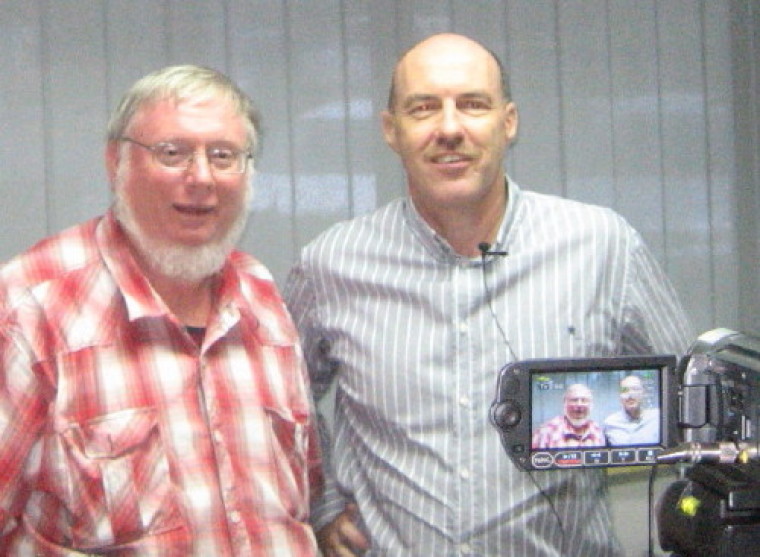
This Gary O'Donnell interview can be viewed on the Australian Missionary News IPTV (Television on the Internet) at http://tv.bushorchestra.com/Sport/videopages/gary_odonnell.html OR www.safeworlds.net
Anchorman for the Australian Missionary News IPTV Mark Tronson first asked Gary O'Donnell about his sports administration background. Gary explained that after a decade in the retail industry he took on the Coaching Director's role for Volleyball Queensland, which was his first foray into the sporting world.
Over a period of time he developed a skill set and organisation capacity and learnt how to encourage people to lift their level of enthusiasm. He moved to Sydney to work with the Sydney Olympic Volleyball program. His great thrill was to lead the Australian team out onto the court for the Sydney Olympics – with 15,000 supporters filling the volleyball stadium.
He honed his administration skills with the Australian Institute of Sport in Sydney with the Volleyball program and later with the Sydney Olympic Park Authority and when the job for CEO of Squash Australia came up, he applied for it and was delighted to be appointed.
Gary O'Donnell explained that Squash Australia is in very good shape. Four Australian men are in the world's top twenty; and thirty are on the world professional circuit of 450 contestants. Similarly, the women have three in the top twenty and 35-40 on the world tour out of 350 contestants. For rankings see -
http://www.squash.org.au/sqaus/players/rankings.htm
But the highest hurdle for squash in Australia is the critical reduction of squash courts. The property boom made it financially irresponsible for squash court owners not to take advantage of their wind falls. By contrast, in the 70s and 80s squash court ownership was a good living and there were ample courts.
This enabled many people of all ages to conveniently have a 'game of squash' for recreation, or even to unwind after a hard day sitting down all the time. Schools could also take advantage of a convenient venue, and many had 'squash' on their weekly sport choices for students. This encouraged young people to become interested in the game. This 'new recruiting' is more difficult now.
Today, Squash Australia is reacquainting itself to local government so that when a recreation centre is planned, squash courts are part of the complex. This is the major challenge Gary O'Donnell faces.
The value of Respite, too, is a major concern for Gary O'Donnell. The top squash players on the international circuit are constantly travelling and we expect a lot from them. Nonetheless, behind the scenes, we must also ensure these athletes and coaches also have a life outside the tunnel vision of sport.
In this sense, they will be refreshed and perform better in both their sport and their wider experiences with family, friends and whatever else they choose to do. Respite in this sense is part of Squash Australia's policy and Gary takes seriously – as it applies to athletes, coaches, administrative staff and executive personnel. No one is exempt from the rigours of burnout or a lack of balance.
Mark Tronson concurs with these remarks, and notes that the main focus of Well-Being Australia is respite for athletes, coaches and sporting families.